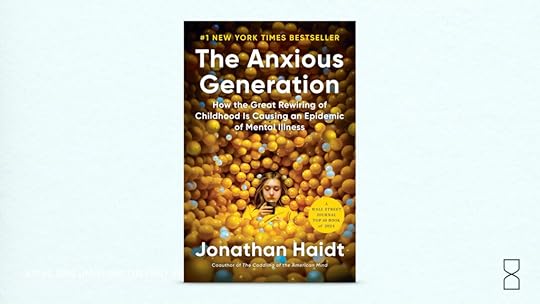Taking Phone Addiction Seriously
Everyoneâs Addicted, But Nobody CaresâAll things are lawful for me,â but not all things are helpful. âAll things are lawful for me,â but I will not be dominated by anything.
1 Corinthians 6:12
Itâs been said that in a few years, we may look back on smartphones the same way we now look at cigarettes. In a very short period, cigarettes went from a normal part of everyday life (remember the smoking section in restaurants?) to being nearly universally condemned as an unhealthy vice.
But the change did not happen overnight, as if we suddenly discovered cigarettes caused lung cancer and everyone hung up their ash trays the next day. It was in 1964 that the The U.S. Surgeon Generalâs Report on Smoking and Health came out, officially noting the link between smoking and cancer, and bringing widespread public attention to the dangers. But the mass rejection of smoking took decades to catch up with what everyone already knew.

I think we may be at the cusp of the same thing happening with smartphone addiction. Everyone knows we’re addicted to our phones, but it seems, at least for now, that few care enough to do anything about it.
The Settled Science of Smartphone AddictionSmartphone addiction snuck up on us.
The very devices that promised to be “a bicycle for the mind,” instead delivered heroin for our attention. As the hardware and software improved, the whole experience of the smartphone became increasingly addictive. Little by little, we slouched into foggy, device-driven dopamine dens.
And our instincts telling us “something is wrong about this” have, more and more, been confirmed by scientific studies on smartphone usage and its effects, especially on goods.

Jonathan Haidtâs The Anxious Generation (2024) began opening peopleâs eyes to the dangers of phones and social media for kids. In the book, Haidt lays down a solid case linking the rise in mental health issues, sleep deprivation, addiction, and self-harm among adolescents to the rise in smartphone and social media use.
The recent “A Consensus Statement on Potential Negative Impacts of Smartphone and Social Media Use on Adolescent Mental Health,” published in May of 2025, evaluated the opinions of international experts to gauge where they stood on the relationship of smartphone and social media use to youth problems. And there is now near unanimity among the experts with 92â97% saying they agree that smartphone and social media use is correlated with the problems we noted above.
We’re at a point where the problems with smartphones and social media for kids are now impossible to ignore.
But even if youâre on board with keeping phones out of your kidâs hands until they turn 16 (Haidtâs recommendation), many adults still seem to think, âYeah, itâs bad for kids. But Iâm an adult, so I can handle it.â But this, too, seems like a belief that won’t survive scrutiny for long.
And while there isn’t as much research on the issues in adults, yet, do you really need a study?
We all joke about being addicted to our phones. If weâre honest with ourselves, many of us simply don’t like how much we use our phones. We know it’s a problem, but we don’t know what to do about it. And it just seems so normal now.
Many of us can probably relate to the words of Catherine Price, author of How to Breakup with Your Phone:
“But as many adults are beginning to realize, itâs not just the phone-based childhood thatâs the problem. Itâs the phone-based life. While children and teenagers are suffering the most from the negative effects of social media and too much screen time, their parentsâand frankly, all adultsâare as well.
“Are You Struggling With Your Own Screen Time?” After Babel, January 29th, 2025
But, even if we admit that our screen time and device usage isn’t optimal, we think, “but this is just how life is now, right? Why fight it? Isnât this normal?”
Hiding Behind âNormalâJust as cigarettes were normal, then, suddenly they werenât; smartphone addiction is almost universal. But ânormalâ is not a synonym for wise.
As Christians trying to faithfully steward our lives for the glory of God, our very definition of normal ought to differ from the world’s.
Is it normal that we read less?Is it normal that we do our devotions less? Is it normal that hospitality, biblical literacy, prayer, and our closest relationships are being pushed to the side by our endless scrolling?I refuse to accept that definition of normal.
But, what are we to do about it?
The Difference Between Impossible and InconvenientIt can seem impossible to operate in todayâs world without a smartphone. Over the years, I’ve detailed my own misadventures with trying out dumb phones and various methods for limiting my device usage. So, I admit that it is true that everything from navigating my car to eating out has become more difficult without a phone. But it’s not impossible.
Quitting your phone isn’t impossible; it’s just inconvenient.
The truth is, it is possible not to be addicted to your phone. Itâs possible not to even own a smartphone if you really want. But it requires embracing something weâve trained ourselves to abhor: Inconvenience.

Weâve become accustomed to comfort and convenience. Once you have air conditioning, itâs hard to imagine life without it. And once you have a phone that lets you instantly look up anything, tap into the latest news, and slay the merest whisper of boredom with a flick of the thumb, itâs hard to go back.
But it’s not impossible.
And Iâm not just theorizing here. I stopped using a smartphone almost a year ago. And, yeah, itâs inconvenient at times (though not as hard as I thought it would be). But itâs not impossible.
Iâve found ways to get directions, access menus at restaurants without a QR code reader, and even take pictures without my phone. Those are the three most common questions I hear people ask when they find out I don’t have a smart phone. But none of those are impossibilities to overcome, are they? I can put a GPS in my car, I can ask the waiter for a paper menu, and I can carry a camera on outings.
Is it less convenient? Yes. Is it impossible? No.
But Is It Worth It?The real question is “is it worth it?”
I donât like inconvenience. No one does. But my argument here is that we should be willing to embrace intentional inconvenience at times when we believe the long-term benefits are worth the immediate trouble.
Limiting your screen time is a sacrifice, so you’ve got to be convinced it’s worth it. I think about it similarly to how I think about exercise. I donât particularly like working out. But I swing my kettlebells around three days a week because my long-term health is worth the present inconvenience.
Our Lord calls us to be living sacrifices. We do this by not letting our lives and minds be conformed to the patterns of this world. We should look differently. The way we use our devices should look different from the world. And sometimes that’s going to require sacrifice.
Romans 12:1â2
âI appeal to you therefore, brothers, by the mercies of God, to present your bodies as a living sacrifice, holy and acceptable to God, which is your spiritual worship. Do not be conformed to this world, but be transformed by the renewal of your mind, that by testing you may discern what is the will of God, what is good and acceptable and perfect.â
I donât like that I canât do all the things I used to do as fast or conveniently as I used to when I had my phone with me all the time, but do you know what I do like?
I like that I have my mind back. I like that I read more.I like that I am watching my kids grow up through my own eyes.I like that the itch for fellowship with people doesnât drive me to a screen but to a cup of coffee, face-to-face. I like that I literally canât reach for my phone first thing in the morning because itâs not there, and instead, more consistently choose to read my Bible instead of scrolling my phone.I love convenience. And I praise God for the blessings of conveniences. But when convenience becomes a vice, we’ve got to embrace intentional inconvenience.
Challenge: Choose Intentional InconvenienceNot everyone needs to take the extreme route of getting rid of their phone. Some people literally cannot because of work or some other factor.
But if the Spirit has been convicting you about your phone usage, don’t write it off as “normal,” or think that change is impossible. Do something about it. When we recognize our devices are becoming an impediment to living the full Christian lives God has designed for us, then a change is in order. A sacrifice needs to be made.
In the Academy, Jessica has been leading a digital detox challenge this month with accountability check-ins for members. But the rules are really simple. You could do something like this yourself.
Choose something youâll abstain from (social media apps, phone on certain days, or donât use your smartphone at all)Decide on a duration (a week? Two weeks? The month?)Identify what youâll be replacing those activities with when the urge hits (put off, put on. See Ephesians 4:22â24)Then, after you’ve experimented with the intentional inconvenience, you can evaluate and decide if permanent changes are in order.
I know for myself, the more extreme measures I’ve taken with quitting social media and my smartphone were only decided after running experiments like these. You may be surprised by what you learn from taking a little break from your devices.
The addict doesn’t know he’s an addict until he tries to quit.



